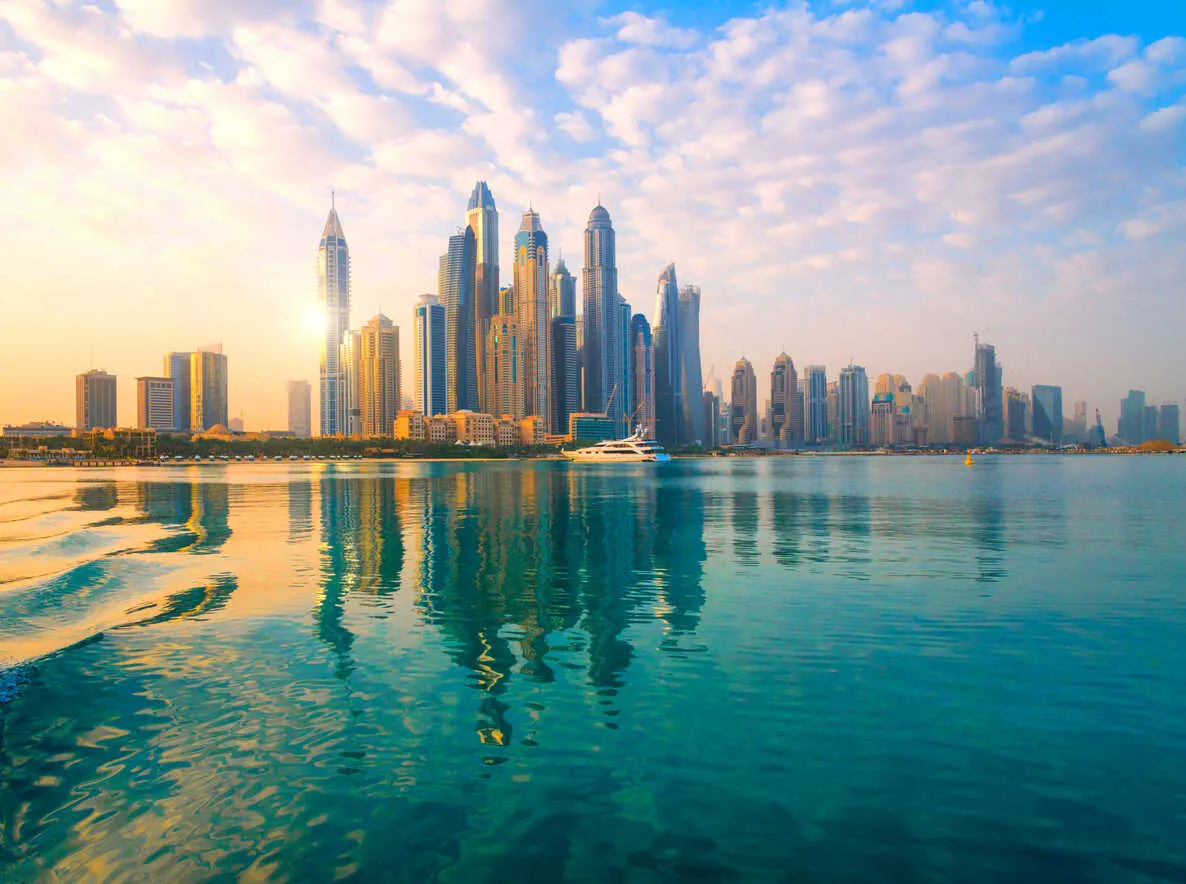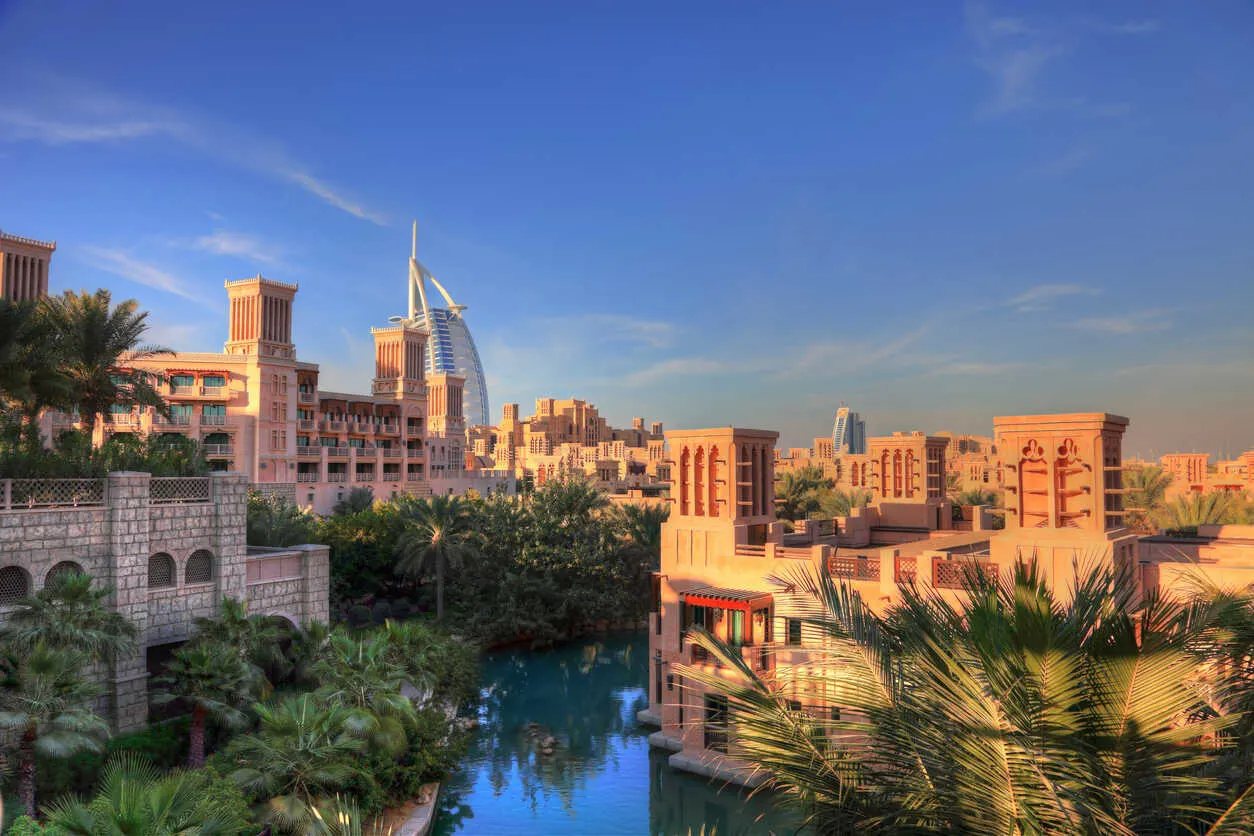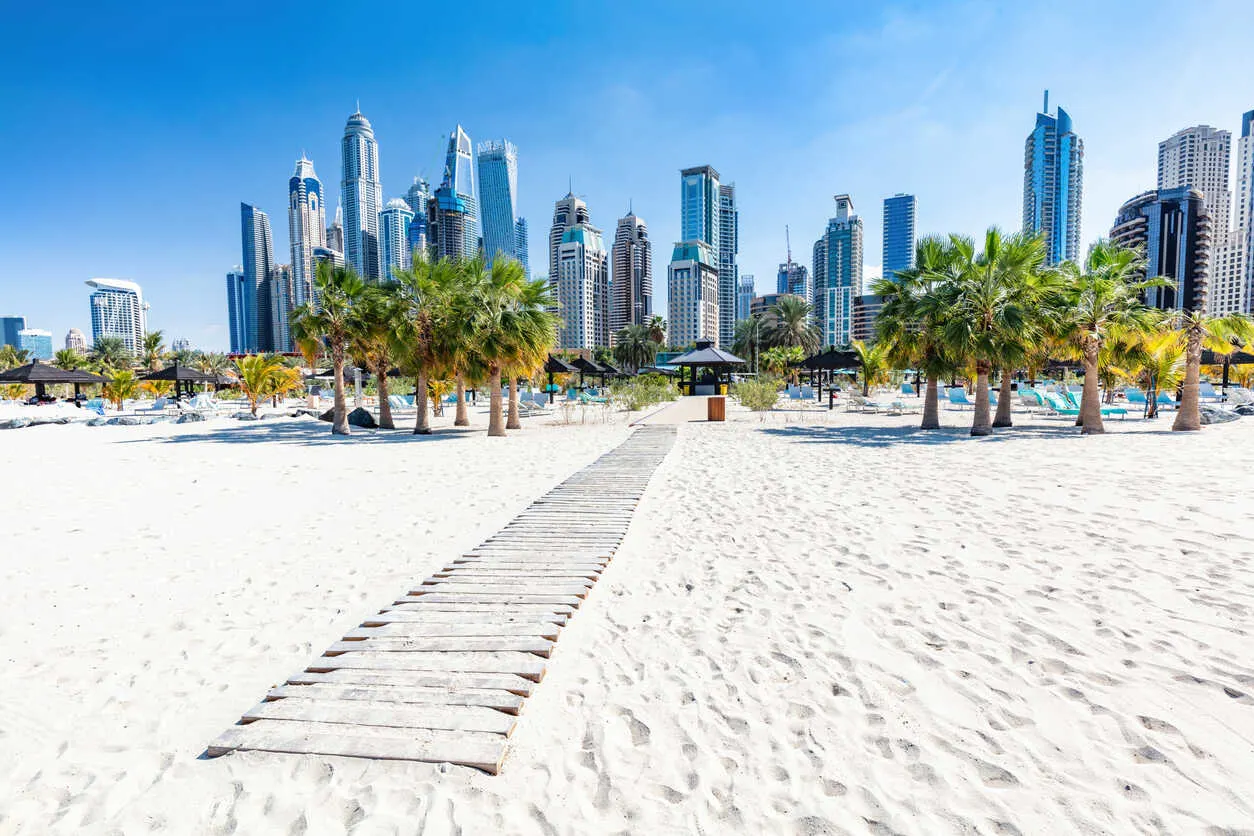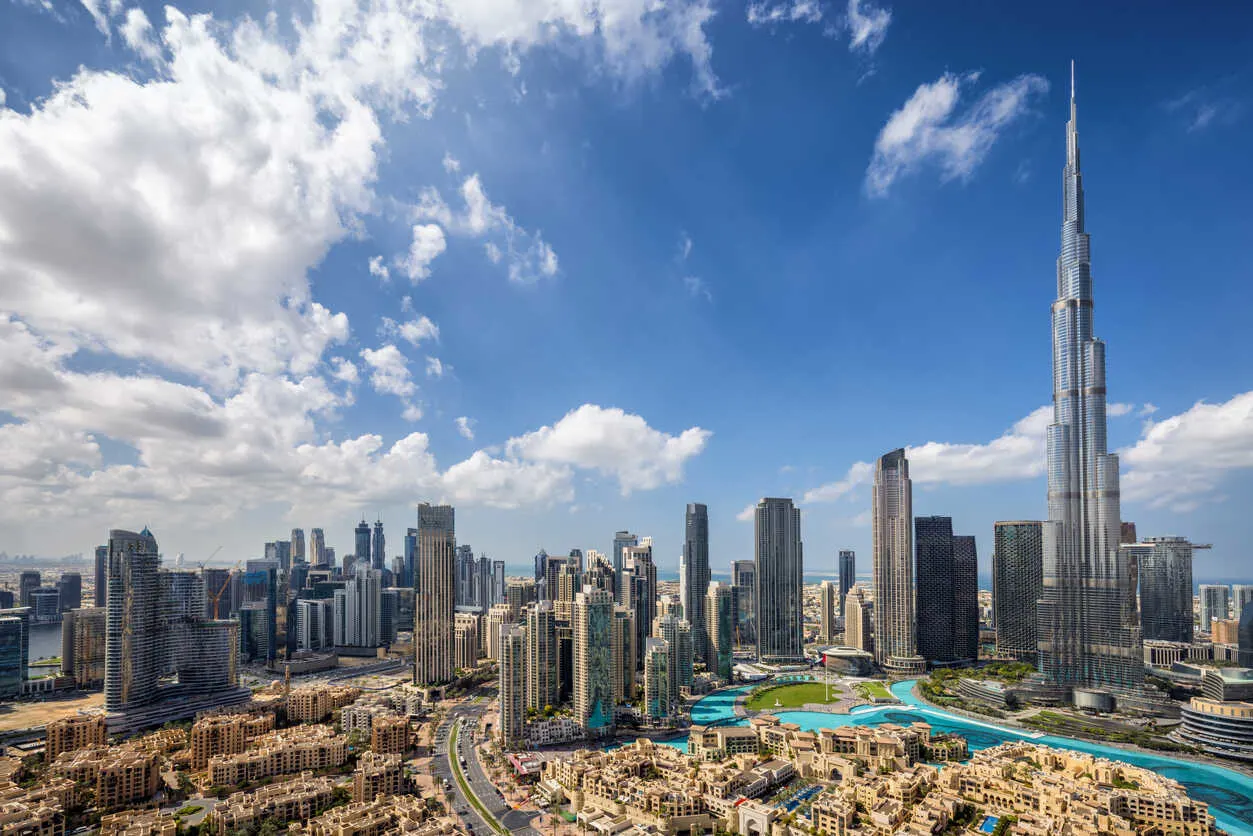The transit area of Dubai International Airport was the most extravagant I’d ever seen. Every surface was gilded, chrome, or silver, or some other shiny medium. The highest of high-end luxury goods beckoned from every direction. No expense had been spared to create the impression of extreme wealth and abundance.
But before that, there’d been an unsettling scene at disembarkation from my Emirates flight from Johannesburg. Half a dozen young Moroccan men had been misbehaving on the flight, stealing from the booze carts and harassing the stewardesses. Heavily armed, aggressive policemen were there to meet them when we landed. And I feared for their immediate futures.
That’s Dubai in a nutshell. It’s cultivated a reputation as one of the most opulent cities on the planet, with a fabulous lifestyle available nowhere else. It’s gone to great lengths to attract expats, especially in technology, commerce, and finance. And it all rests on a commitment to cracking down hard on disorder.
Dubai continues to rise on the international radar. For the third year in a row, investment migration firm Henley & Partners named the United Arab Emirates—of which Dubai is part—as the country attracting the most new millionaires in the world. Countries like the UK and China are losing thousands of millionaires as they flee for elsewhere… in many cases, to places like Dubai.
So, I wanted to do a deeper dive… Is Dubai a place that International Living readers should be considering?
Well, like any destination, it depends on what you’re looking for…
The World’s Best Retirement Havens for 2025
The World’s Best Retirement Havens for 2025
20 Countries Compared, Contrasted, Ranked, and Rated. You don’t have to be rich to enjoy a pampered retirement, you just need to know where to go. With our 34th Annual Global Retirement Index, our experts hand you a detailed roadmap. Details—and a Special Offer—Here

By submitting your email address, you will receive a free subscription to IL Postcards and special offers from International Living and our affiliates. You can unsubscribe at any time, and we encourage you to read more about our Privacy Policy.
"An Emirate of Immigrants"

The first thing to understand about Dubai is that it’s not a country.
Dubai is one of seven emirates that make up the United Arab Emirates (UAE). Although it’s technically accountable to the federal government in Abu Dhabi, it is autonomous in internal matters, including immigration.
The second key fact is that native-born citizens only make up a small proportion of the population. The rest are immigrants.
South Asians: 70%. Most of Dubai’s expatriate population comes from South Asian countries like India, Pakistan, Bangladesh, and Sri Lanka. All are engaged primarily in unskilled labor or the service sectors.
Other Arab Nationals: 10%-15%. Expatriates from other Arab nations, including Egypt, Jordan, Syria, and Lebanon. Some engage in business; others are in the service sector.
Western Expats: 10%. Many Westerners, particularly from the UK, Europe, the US, Canada, and Australia, live in Dubai. They are often employed in professional sectors like finance, education, and technology.
Native-born Emiratis: 10%-15%. Very few Emirati citizens work in the private sector. Most either work for the government or survive on government handouts.
This population structure allows Dubai to position itself as a land of opportunity for expats. The South Asian population is migrant workers on contract via labor brokers. They’re tightly controlled, and often live in segregated barracks away from main population centers. Labor organization and strikes are forbidden. This ensures they can be employed at low wages.
Cheap labor allows expatriates to enjoy an attractive standard of living. Economic activity like government revenue from expat-run economic sectors help fill the government’s coffers and allow the native population to live without working.
Life in Dubai: No Taxes… No Free Speech

Dubai is one of the most popular destinations for expats seeking a high standard of living.
Healthcare and schooling are excellent. Infrastructure is ultramodern… futuristic skyscrapers, luxury malls, and high-end residential communities. Luxury cars, fine dining, and exclusive beach clubs abound.
The world’s greatest luxury brands are here, as well as Michelin-starred restaurants. Dubai offers a vibrant nightlife of bars, clubs, and lounges oriented to expats. Beach clubs and rooftop bars are especially popular.
Dubai’s one-of-a-kind location as a desert city adjoining the sea offers unique outdoor activities, including dune surfing and desert safaris. Beaches, water parks, and resorts are plentiful.
This lifestyle attracts people from all over the world. But expats from specific nations can easily find each other to recreate a sense of home.
Dubai is one of the safest countries in the world, with exceptionally low crime rates. Another big attraction is its lack of personal income tax. Salaries are competitive, especially for skilled professionals, which contributes to the luxury lifestyle. Public transportation is excellent and 14%-25% less expensive than in most western cities. The economy is growing at a fantastic clip of 8% every year.
Offsetting this is the inflated cost of groceries, since most foodstuffs are imported. High taxes mean that alcohol can be double the price of other countries. Internet access is also costly, at 45% more than the US average.
The most challenging expense, however, is housing. Rentals in central Dubai are 20% to 30% more than in comparable US cities. The price per square meter of apartments and freestanding homes is up to 50% higher.
Another consideration is that summers in Dubai can be brutally hot, with daily temperatures commonly exceeding 100°F.
The downside is strict enforcement of laws about speech, alcohol consumption, drug use, public displays of affection, and behavior considered indecent to Muslims. Westerners can be ensnared in the legal system for behavior that would be normal at home. In 2017, for example, a Scottish man who touched a man’s hip while trying to pass through a crowded bar was arrested and accused of public indecency. He was sentenced to three months in jail, then deported back to the UK.
In 2009, a British woman was accused by her estranged husband of adultery. Despite a lack of evidence, she was sentenced to three months in jail and lost custody of her children. Western women are advised to dress modestly in public.
Nevertheless, Dubai is not the rigid Middle East many Americans imagine. As my colleague Jeff Opdyke reports, you’ll see women everywhere in burqas and hear muezzins call the faithful to prayer. "But you’ll also see women in bikinis on the beach, wandering the city in shorts, and people openly consuming alcohol in hotels, bars, and beach clubs. In short: Dubai is for the jet-set and those who aspire to be."
Dubai Could Suit You If…

The typical Dubai expat works in finance, technology, trade, construction, tourism, or healthcare. Dubai’s business-friendly environment and tax laws attract startup entrepreneurs.
Dubai’s expats tend to be people in the middle of their working lives. The emirate has excellent schools, world-class healthcare, and many safe gated communities, which makes it family friendly for expats with young children. The hard-driving work culture attracts career-oriented people climbing up life’s hill rather than easing down it.
That isn’t to say everyone in Dubai is there for work. The city’s tax-free status, luxurious lifestyle, and world-class residences in areas like Palm Jumeirah and Dubai Marina attract high-net-worth individuals from all over the world.
Dubai’s streets are full of the rarest and most expensive automobiles to be found anywhere, and exclusive clubs and restaurants cater to the world’s wealthy elite.
As Jeff put it:"Of the cities I’ve hit across 80-ish countries, Dubai is the only one where I saw a Lamborghini pull up behind a Ferrari at a red light, only to have two Maserati SUVs arrive on either side of me, followed by a Mercedes Maybach SUV. I was in a Tesla SUV."
Who’s Dubai Not Good For?
I consulted a former IL colleague who now works in real estate in Dubai, and asked her a straightforward question: What type of person would not enjoy life there?
She had no hesitation in saying that for the average Western retiree, Dubai is challenging. Taxes are low, but that’s offset by the cost of accommodation. Although it’s possible to find cheaper apartments outside the city center, they’re so far away that you can’t take advantage of Dubai’s attractions. If you’re looking for a quiet life, you’re going to struggle in Dubai because it’s all about nightlife, restaurants, and bling.
Another challenge my friend cited is the heat. High-net-worth retirees can live in an air-conditioned apartment and be ferried from place to place in air-conditioned cars and limousines. But for those of lesser means, living in Dubai can mean being trapped in one’s apartment for months at a time, venturing out only to shop. When I asked her about the beaches during the hot weather, she said people tended to congregate in the air-conditioned lounges next to the water.
Service establishments like restaurants, clubs, and salons require a particular type of worker in Dubai. Emiratis don’t want these jobs… but expats don’t want to be served by migrant laborers from South and East Asia. Consequently, labor brokers have recruited young South Africans (and the English and Irish) for decades.
I’ve known many of them… and many are comfortable with their experience. But a sizable number express concern about Dubai’s society. They say it reminds them of apartheid South Africa, in the sense that working people are controlled and exploited for the benefit of the wealthy. They say one can ignore this for a while, but eventually the contradiction makes living in the country increasingly uncomfortable.
Visa Options for Investors, Freelancers, and More…

Dubai is welcoming to immigrants—after all, it’s built around them. But as I’ve explained, the emirate wants a particular kind of expat. That shapes the pathways to long-term residency there.
The first is the country’s Golden Visa. Renewable long-term residency of five to 10 years is available to investors in local businesses or those who buy real estate worth at least $550,000. Also eligible are doctors, scientists, researchers, and specialized experts. Professionals in technology, engineering, and medicine can get a Golden Visa.
Long-term residency is also possible if you buy a property for at least $205,000. The property must be owned outright, with no mortgage. The permit is valid for three years and can be renewed as long as you still own the property. The downside is that there are very few properties in that price range, so that most people looking for a residential route to life in Dubai opt for a Golden Visa.
A five-year retirement permit is also available. It requires ownership of a property worth at least $550,000, a minimum passive income of $5,500 a month, and $275,000 in an Emirati bank.
Digital nomads can live in Dubai in two ways. There’s a freelance and self-employment visa that requires a work permit issued by one of the emirate’s free trade zones or government programs. It’s only available to people in specific technology and media sectors. It’s issued for one to three years and can be renewed.
There’s also a digital nomad visa that requires a minimum salary of $5,000 a month. It’s valid for a year and is renewable. However, it’s only available to employees of foreign companies, not freelancers.
Dubai is worth the trip for its many attractions. There aren’t many places in the world you can experience the high desert on a camel in the morning and lounge on the beach in the afternoon. But it’s designed for hard-charging, ambitious expats in mid-career. And a hefty income to be comfortable. If you’re looking for a slow-paced, carefree place to call home, I have other recommendations.
Consult with Me, One-on-One
My Mission: To Make Your Life Simpler, Safer, and Freer … Not More Complicated
Stop overcomplicating, second-guessing, or giving in to “information paralysis” … Let’s sit down together (online), and I’ll help you create a custom blueprint for your international goals… second passports, tax, travel, retirement, estate, business, and more…
